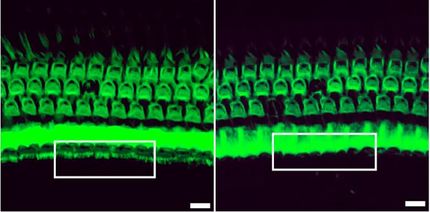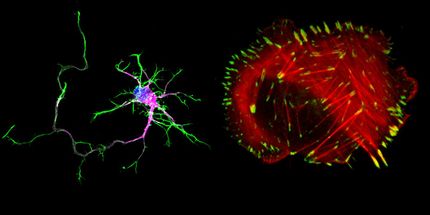NIH study reveals new genetic culprit in deadly skin cancer
Sequencing work points to new target for melanoma treatment
Advertisement
Drawing on the power of DNA sequencing, National Institutes of Health researchers have identified a new group of genetic mutations involved in the deadliest form of skin cancer, melanoma. This discovery is particularly encouraging because some of the mutations, which were found in nearly one-fifth of melanoma cases, reside in a gene already targeted by a drug approved for certain types of breast cancer.
In work published in Nature Genetics , a team led by Yardena Samuels, Ph.D., of the National Human Genome Research Institute (NHGRI) sequenced the protein tyrosine kinase (PTK) gene family in tumor and blood samples from people with metastatic melanoma. The samples were collected by the study's coauthor Steven Rosenberg, M.D., Ph.D., a leading expert on melanoma and chief of surgery at the National Cancer Institute (NCI).
The PTK family includes many genes that, when mutated, promote various types of cancer. However, relatively little had been known about roles played by PTK genes in human melanoma. The NIH study was among the first to use large-scale DNA sequencing to systematically analyze all 86 members of the PTK gene family in melanoma samples.
The team's initial survey, which involved samples from 29 melanoma patients, identified mutations in functionally important regions of 19 PTK genes, only three of which had been previously implicated in melanoma. The researchers then conducted more detailed analyses of those 19 genes in samples from a total of 79 melanoma patients.
One of the newly implicated genes stood out from the rest. Researchers detected mutations in the ERBB4 gene (also known as HER4) in 19 percent of patients' tumors, making it by far the most frequently mutated PTK gene in melanoma. In addition, researchers found that many ERBB4 mutations were located in functionally important areas similar to those seen in other PTK oncogenes involved in lung cancer, brain cancer and gastric cancer.
Next, the researchers moved on to laboratory studies of melanoma cells with ERBB4 mutations. They found that these melanoma cells were dependent on the presence of mutant ERBB4 for their growth. What's more, the melanoma cells grew much more slowly when they were exposed to a chemotherapeutic drug known to inhibit ERBB4. The drug, called lapatinib (Tykerb), was approved by the Food and Drug Administration in 2007 for combination use in breast cancer patients already taking the drug capecitabine (Xeloda).
Encouraged by their study results, the researchers are planning a clinical trial using lapatinib in patients with metastatic melanoma harboring ERBB4 mutations. The clinical trial will be conducted under the direction of Dr. Rosenberg at the NIH Clinical Center. "This collaborative study represents an ideal example of how sophisticated genetic analyses can be translated to the benefit of cancer patients," said Dr. Rosenberg.
"We have found what appears to be an Achilles' heel of a sizable share of melanomas," said Dr. Samuels, who is an investigator in the Cancer Genetics Branch of the NHGRI's Division of Intramural Research. "Though additional work is needed to gain a more complete understanding of these genetic mutations and their roles in cancer biology, our findings open the door to pursuing specific therapies that may prove useful for the treatment of melanoma with ERBB4 mutations."
In addition to ERBB4, the researchers identified two additional PTK genes, FLT1 and PTK2B, with a relatively high rate of mutations in melanoma. Each of these genes was mutated in about 10 percent of the tumor samples studied.

























































